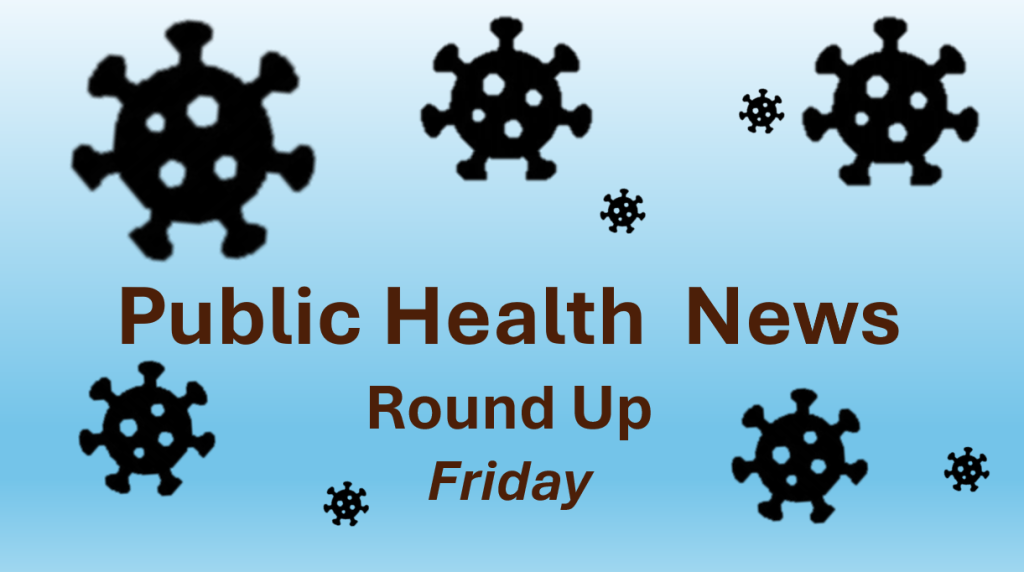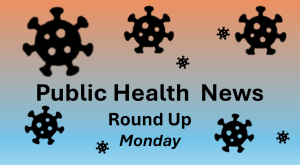
Public Health News Round Up, April 25, 2025
Look, if you haven’t been following the news this week, the proposed 2026 HHS budget leaked. It’s not good! You can read all about it here.
Here are the topics we have on deck coming up.

And, of course, we need to plug that we are 100% self-funded. No grants, no outside capital. Anything you can do to help us out is appreciated. Maybe you’d like to sign up for our article feed? Or maybe you just want to pass this on to someone else. Whatever you can do, it’s good!
Beyond Ivy League, RFK Jr.’s NIH slashed science funding across states that backed Trump
The NIH’s funding cuts under the Trump administration are sending shockwaves across the U.S., impacting a wide range of research, including critical studies on public health issues like HIV and vaccine uptake, with consequences that could set scientific progress back by at least a decade. Researchers are rallying to contest the abrupt terminations, emphasizing that the cuts neglect the reality that diseases often disproportionately affect marginalized groups and hinder attempts to address health disparities nationwide.
Note, we have a blog post and data dashboard to explore this. We found not difference in cuts based on political affiliation.
Drew Pinsky Is America’s Doctor. Whatever That Means Now.
Dr. Drew Pinsky, a physician who gained fame for his work on media platforms like MTV’s “Loveline,” has recently shifted his focus to promoting “medical freedom” and hosting controversial guests on alternative platforms like Rumble, reflecting broader societal tensions about trust in traditional health experts and the influence of social media. This evolution highlights the collision between established medical knowledge and emerging free-speech debates in the post-pandemic media landscape, raising questions about the responsibilities of public figures in disseminating health information.
Mercy Medical Center in Aurora can no longer provide same level of trauma care, state says
The Illinois Department of Public Health has revoked Mercy Medical Center in Aurora’s Level II Trauma Center designation due to staffing shortages, raising concerns about trauma patient care in the state’s second-largest city. While emergency services remain open, trauma cases will be redirected, highlighting the broader issue of medical staff attrition at the hospital.
RFK Jr. Wants an Autism ‘Registry.’ People Are Pissed
Health and Human Services Secretary Robert F. Kennedy Jr.’s initiative to establish a “disease registry” for autism, announced by NIH Director Jay Bhattacharya, is stirring debate, particularly following Kennedy’s controversial remarks about autism that have been criticized as stigmatizing by many in the autism community. While the registry and related data platform could advance research by providing access to real-world medical data, concerns about privacy, data misuse, and the framing of autism as a homogeneous burden persist, highlighting a disconnect between Kennedy’s agenda and the lived experiences and needs of autistic individuals and their families.
The U.S. is approaching a dangerous measles precipice, scientists say
Stanford’s Dr. Nathan Lo and Mathew Kiang warn in their recent study that the slight dip in U.S. childhood vaccination rates, if continued, could make measles endemic again within 25 years, resulting in hundreds of thousands of cases and deaths from vaccine-preventable diseases. Increasing vaccination rates even modestly could prevent this dire scenario, but given the current political climate and vaccine skepticism, further declines seem more likely, posing a severe threat to public health.
Trump’s plans to assess tariffs on imported drugs could raise prices, cause drug shortages
The prospect of tariffs on pharmaceutical imports proposed by the Trump administration could lead to higher drug prices and possible shortages, particularly affecting generic medicines that rely heavily on cost-effective production in China and India. While the intention is to boost domestic manufacturing, experts warn that without a strategic plan, these measures could disrupt supply chains and exacerbate existing challenges in U.S. healthcare, potentially impacting millions of patients.
What happens to health research when ‘women’ is a banned word?
Amidst new federal funding cuts and restrictive policies under the Trump administration aimed at limiting research on gender and diversity, significant setbacks loom for the study of women’s health and LGBTQ+ issues. Researchers fear these changes may stall decades of progress and deepen existing health inequities by curtailing essential studies on conditions predominantly affecting women and marginalized groups, forcing many scientists to either alter their research focus or seek opportunities outside the U.S.



